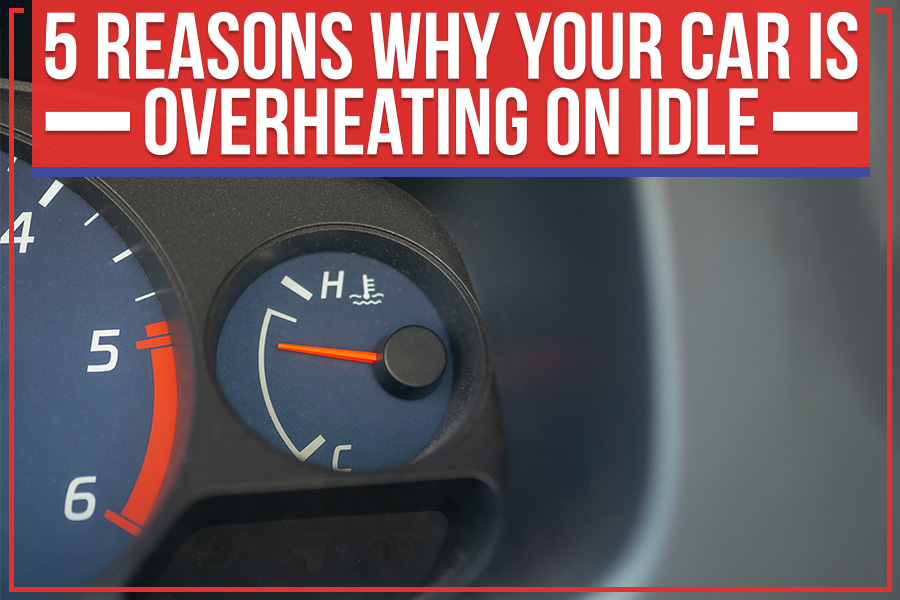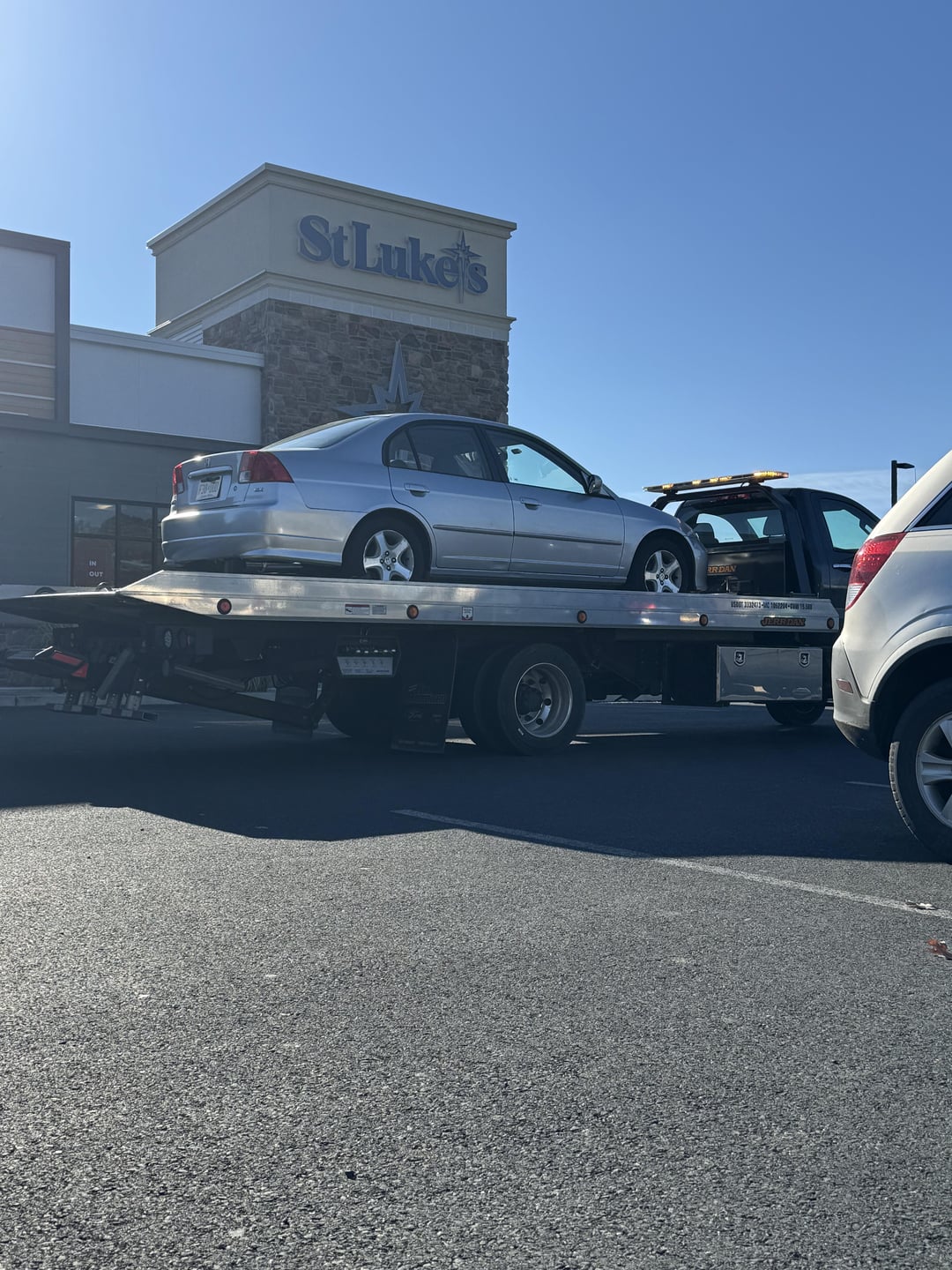A car overheating while driving but not idling is a frustrating issue. It can leave drivers puzzled and worried about their vehicle’s health.
When your car overheats on the road but stays cool while idling, it signals a specific problem. This common issue can be caused by various factors, from coolant system malfunctions to airflow problems. Understanding the root cause is crucial to prevent further damage and costly repairs.
In this blog post, we’ll explore the reasons behind this overheating phenomenon, helping you identify and address the problem effectively. Stay with us to learn how to keep your car running smoothly, whether on the move or at a standstill.
Common Symptoms
The temperature gauge spikes when your car overheats. This means the engine is getting too hot. If the gauge shows red, stop the car. Check the coolant level. Low coolant can cause overheating. Sometimes, the radiator fan doesn’t work. This can also cause the temperature to rise.
Steam from the hood is a clear sign of overheating. Steam means hot coolant is escaping. This can happen if the radiator cap is loose. Check the cap and tighten it. Steam can also mean a leak in the cooling system. Look for puddles under the car. Fixing leaks is important to prevent damage.

Credit: www.reddit.com
Possible Causes
Low coolant levels can make your car overheat. Coolant helps keep the engine cool. When coolant is low, the engine gets too hot. This can happen while driving. Check your coolant often to avoid problems.
A faulty radiator can also cause overheating. The radiator removes heat from the engine. If it is broken, heat stays in the engine. This makes the engine overheat. Look for leaks or damage in the radiator. Fixing these issues can stop overheating.
Engine Issues
A broken thermostat can cause your car to overheat. It controls the engine’s temperature. If it stays closed, coolant can’t flow. The engine then gets too hot. You may notice this while driving. Replacing the thermostat is often the solution.
The water pump helps move coolant through the engine. If it fails, the coolant won’t circulate. This can cause overheating. Check for leaks or noises. Sometimes, the pump may need replacement. It’s important to act quickly.
Cooling System Troubles
A car’s radiator fan helps cool the engine. If the fan fails, the car may overheat while driving. This is because the fan can’t pull enough air through the radiator. Check if the fan is working. Sometimes the fan motor or relay is bad. Other times, a fuse may blow. Fixing the fan can solve the overheating.
A radiator can get clogged over time. Dirt and rust build up inside. This blocks the flow of coolant. When this happens, the engine can’t cool down. You may need to flush the radiator. Sometimes, a radiator replacement is necessary. Keeping the radiator clean helps prevent overheating.
Electrical Problems
Sensors help monitor the engine’s performance. A faulty sensor can give wrong data. This can lead to overheating. Temperature sensors are crucial. They tell if the engine is too hot. Replacing faulty sensors may solve the issue.
Wires connect the sensors to the car’s computer. Damaged wires can cause false readings. This may lead to overheating. Inspecting and fixing wiring issues is important. Loose connections can also be a problem. Ensure all wires are secure.
Checking For Leaks
Coolant leaks can cause your car to overheat. Check the radiator and hoses for cracks. Look for puddles under the car. Low coolant levels mean there is a leak. Adding more coolant is a temporary fix. Find and fix the leak to stop overheating.
Oil leaks can also cause problems. Look for oil spots under the car. Check the oil level with the dipstick. Low oil can cause the engine to overheat. Fix any leaks as soon as possible. Overheated engines can be damaged.
Preventive Maintenance
A car overheating while driving but not idling often points to issues with the cooling system. Regular checks and preventive maintenance can help avoid this problem. Ensure the radiator, thermostat, and water pump function properly.
Regular Coolant Check
Always check the coolant level in your car. Low coolant can cause the engine to overheat. Use the right type of coolant for your car. Check the coolant level at least once a month. Replace the coolant as needed. Make sure there are no leaks. Coolant leaks can lead to engine damage. Your car’s manual can guide you. Follow the instructions carefully. A well-maintained coolant system keeps your car safe.
Radiator Cleaning
The radiator helps keep the engine cool. Dirt and debris can block the radiator. Clean the radiator regularly. Use a soft brush to remove dirt. Be gentle to avoid damage. Check the radiator fins. They should be straight and clean. Bent fins can reduce cooling. A clean radiator helps the engine stay cool. It also improves the car’s performance. Always keep the radiator in good condition.
Professional Solutions
Car overheating while driving but not idling can indicate issues with airflow, coolant levels, or radiator performance. Professional solutions help diagnose and fix these problems efficiently, ensuring smooth and safe driving.
Seek Mechanic Help
A mechanic can inspect your car for problems. They will check the cooling system. They will also look at the radiator and thermostat. They can find leaks or blockages. Fixing these issues can stop your car from overheating. A mechanic has the right tools and skills. They can do the job fast and safely.
Cost Estimates
| Service | Estimated Cost |
|---|---|
| Radiator Repair | $200 – $500 |
| Thermostat Replacement | $150 – $250 |
| Coolant Flush | $100 – $150 |
| Leak Fix | $50 – $150 |
Costs can vary. Always ask for a quote before work starts. This helps avoid surprises on the bill.

Credit: www.feldmanwoodhaven.com
Frequently Asked Questions
Why Does My Car Overheat While Driving But Not Idling?
Your car may overheat while driving due to a failing radiator fan, low coolant, or a faulty water pump.
Why Does My Car Only Get Hot When I Drive?
Your car may only get hot while driving due to poor airflow or a failing cooling system. Check the radiator and coolant levels.
Why Is My Car Overheating When I Move?
Your car may overheat due to low coolant levels, a failing thermostat, or a malfunctioning radiator. Check for leaks.
Why Does My Car Overheat When I Accelerate?
Your car might overheat due to a failing thermostat, low coolant levels, or a malfunctioning water pump. Check for leaks and ensure proper coolant circulation. Regular maintenance can prevent overheating issues.
Conclusion
To wrap up, dealing with a car that overheats while driving can be stressful. Check coolant levels regularly. Keep an eye on the thermostat. Monitor the radiator fan’s performance. Simple checks can prevent bigger problems. Regular maintenance is key. Follow these tips to keep your car running smoothly.

